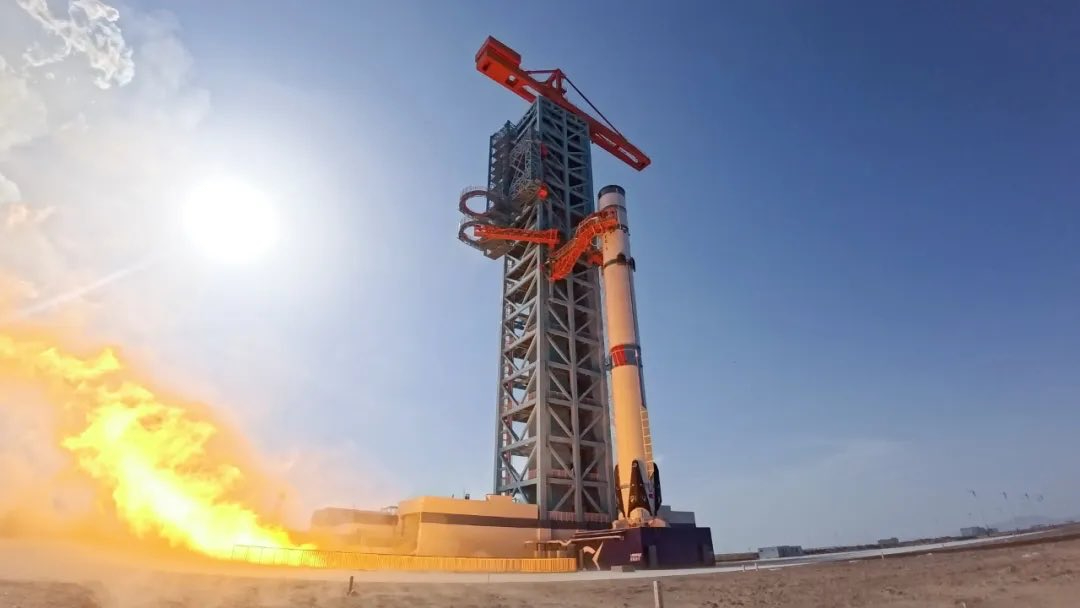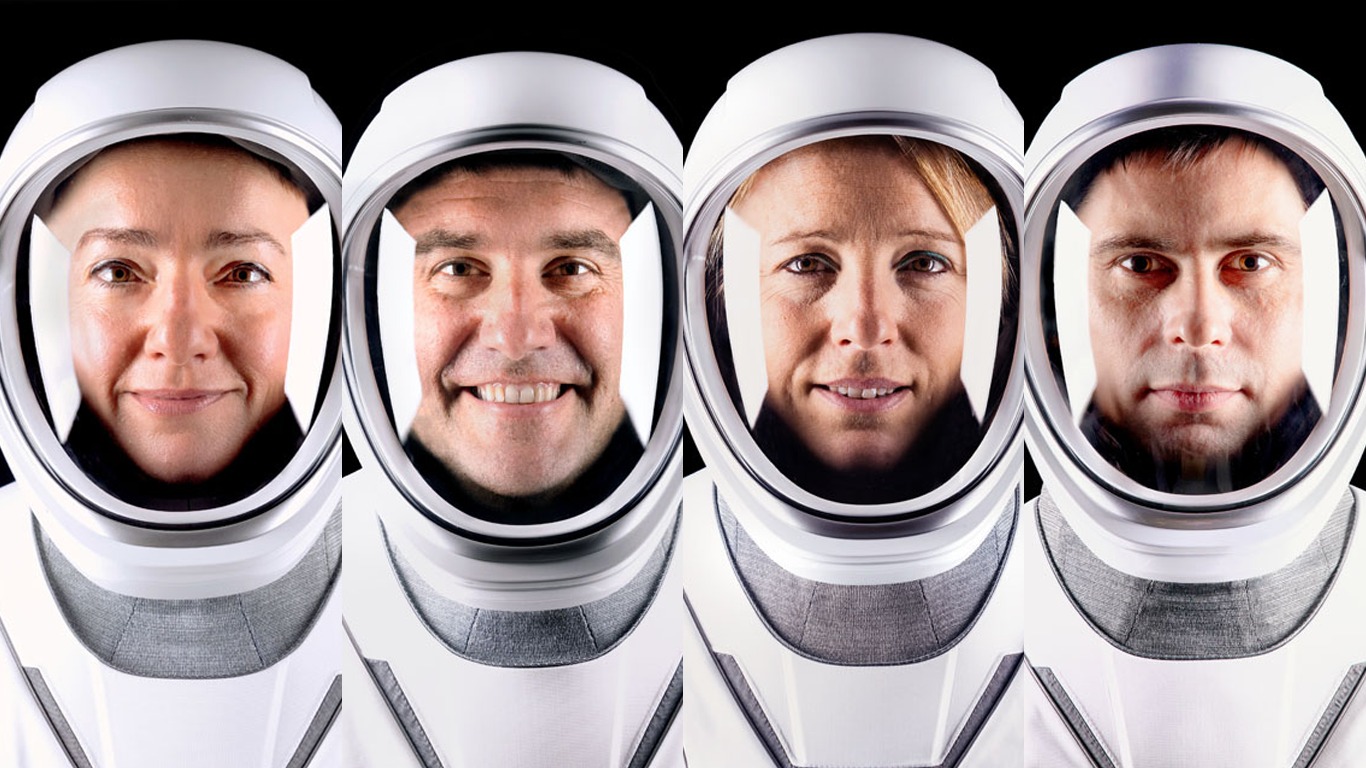China's 1st reusable rocket test fires engines ahead of debut flight (video)
China's first reusable rocket just took a big step toward flight.
The Chinese company LandSpace conducted a static-fire test with its stainless steel Zhuque-3 launcher on Monday (Oct. 20), keeping the rocket on track for a debut expected to occur before the end of the year.
The static fire — a common prelaunch trial in which a rocket fires its engines while remaining anchored to the pad — capped the three-day "first phase" of Zhuque-3's maiden flight campaign, according to LandSpace.

That phase also included a fueling test, which, like the static fire, took place in the Dongfeng Commercial Space Innovation Pilot Zone in northwestern China.
"The vehicle will next proceed with planned vertical integration rehearsal, before returning to the technical zone for inspection and maintenance in preparation for its upcoming orbital launch and first-stage recovery," LandSpace said via X on Monday.
Zhuque-3 looks a lot like SpaceX's workhorse Falcon 9 rocket, which also features a reusable first stage and an expendable upper stage. Like the Falcon 9, Zhuque-3's booster is powered by nine engines — in this case, Tianque-12As, which LandSpace developed in house.
The Tianque-12A employs liquid methane and liquid oxygen (LOX) propellants — a key difference with the Falcon 9, whose Merlin engines burn LOX and rocket-grade kerosene. (SpaceX's next-gen Raptor engine, which powers its Starship megarocket, uses LOX and liquid methane.)
Breaking space news, the latest updates on rocket launches, skywatching events and more!
The 217-foot-tall (66 meters) Zhuque-3 can haul about 40,350 pounds (18,300 kilograms) to low Earth orbit (LEO). That's in roughly the same ballpark as the Falcon 9, whose LEO payload capacity is 50,265 pounds (22,800 kg).
Monday's static fire was the latest in a series of significant milestones for the Zhuque-3. For example, LandSpace performed low-altitude launch and landing tests with the vehicle last year, and it conducted a static fire this past June.
Beijing-based LandSpace, which was founded in 2015, also flies the expendable Zhuque-2. In July 2023, that rocket became the first LOX-methane vehicle to reach Earth orbit. That debut kicked off a string of four consecutive successes for Zhuque-2, but the rocket failed on its most recent liftoff this past August.

Michael Wall is a Senior Space Writer with Space.com and joined the team in 2010. He primarily covers exoplanets, spaceflight and military space, but has been known to dabble in the space art beat. His book about the search for alien life, "Out There," was published on Nov. 13, 2018. Before becoming a science writer, Michael worked as a herpetologist and wildlife biologist. He has a Ph.D. in evolutionary biology from the University of Sydney, Australia, a bachelor's degree from the University of Arizona, and a graduate certificate in science writing from the University of California, Santa Cruz. To find out what his latest project is, you can follow Michael on Twitter.
You must confirm your public display name before commenting
Please logout and then login again, you will then be prompted to enter your display name.
